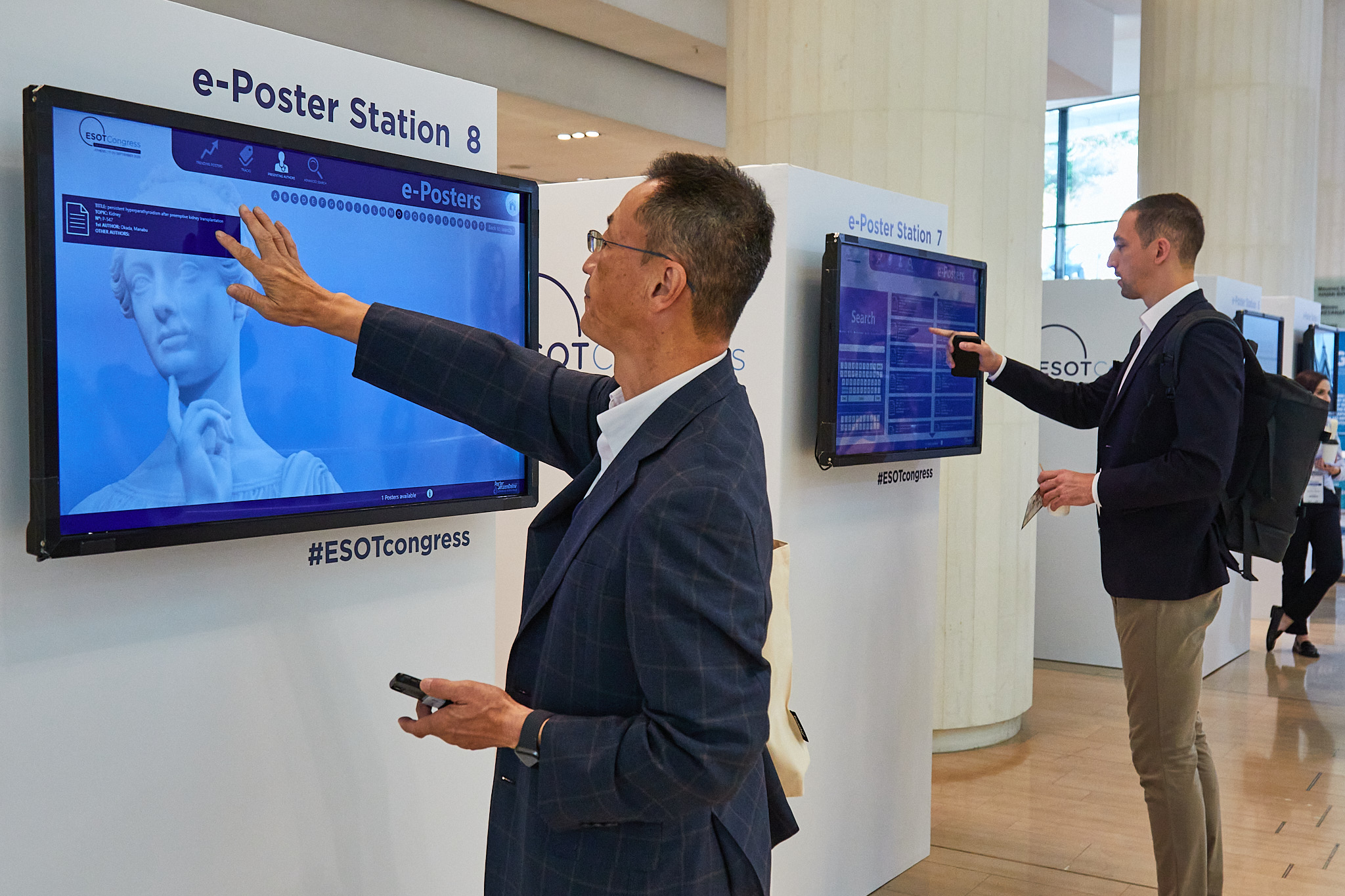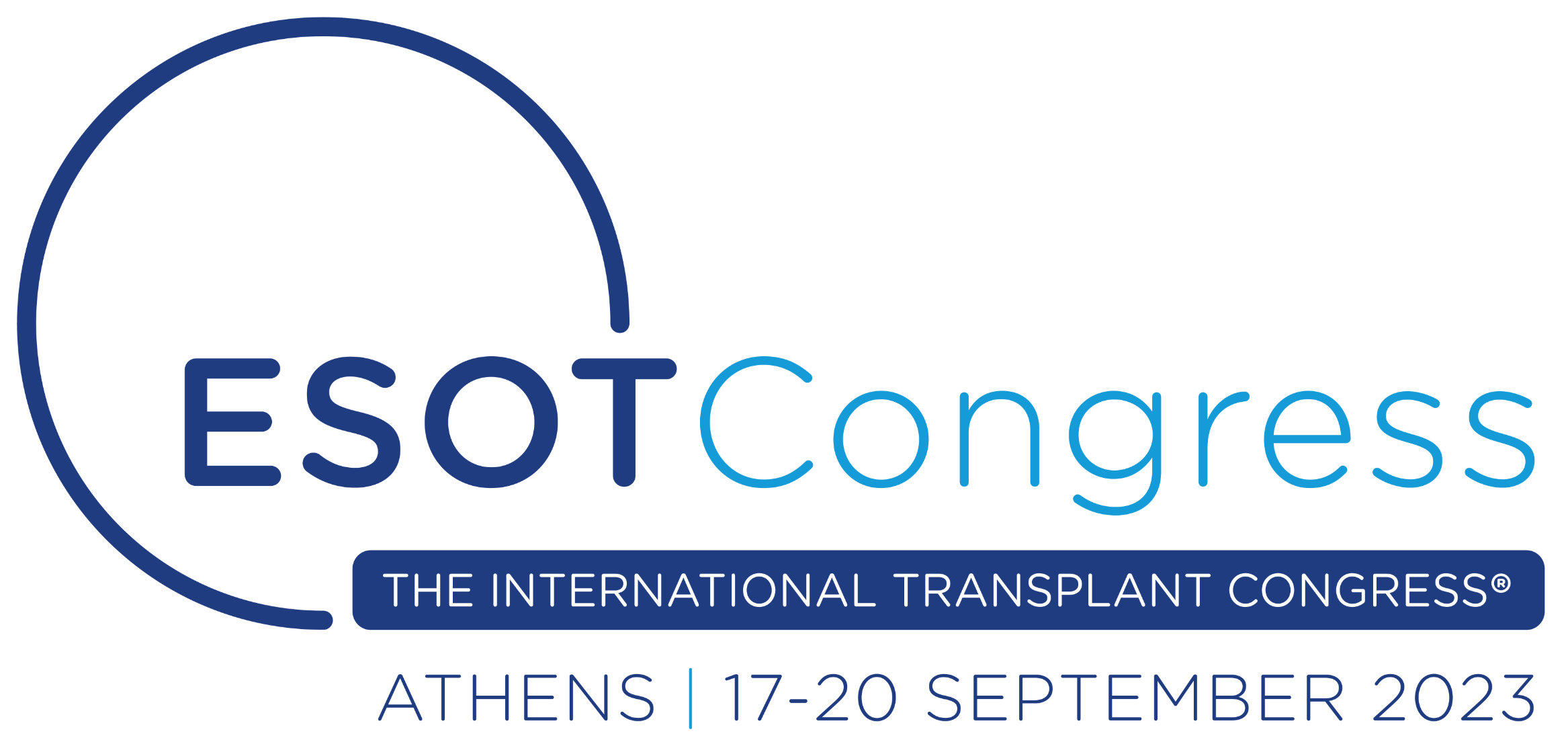Daily Recap: Day 2
Monday 18 September
Welcome to Day 2 of the ESOT Congress 2023!
The second day of the ESOT Congress brought more key highlights from our world-class Scientific Programme, saw the presentations of the Leonardo Da Vinci Transplant Research Innovation Award final abstracts, and marked the start of the wet lab hands-on courses! Find out more below.

Leonardo Da Vinci Transplant Research Innovation Presentations
The prestigious Leonardo Da Vinci Transplant Research Innovation Award celebrates exceptional scientific contributions within the realm of transplantation. The award consists of two categories: one for the most outstanding clinical research presentation and another for the top basic/translational science presentation. Leading up to the congress, a rigorous selection process identified eight exceptional abstract submissions—four focused on clinical research and four on basic or translational science.
The four clinical nominees are Louisa Steines, Anna Christina Dragon, Julien Zuber and Alice Koenig. In the basic or translational science category, the four nominees are Elisabet Van Loon, Marc Raynaud, Marta Jimenez-Blanco and Janina Eden.
Today, each author was granted a special platform to present their research at a dedicated session. Following the presentations, audience members and an expert jury panel engaged in a gripping question-and-answer session with each presenter.
Stay tuned to find out the winners of this award on Wednesday at the Closing Session!
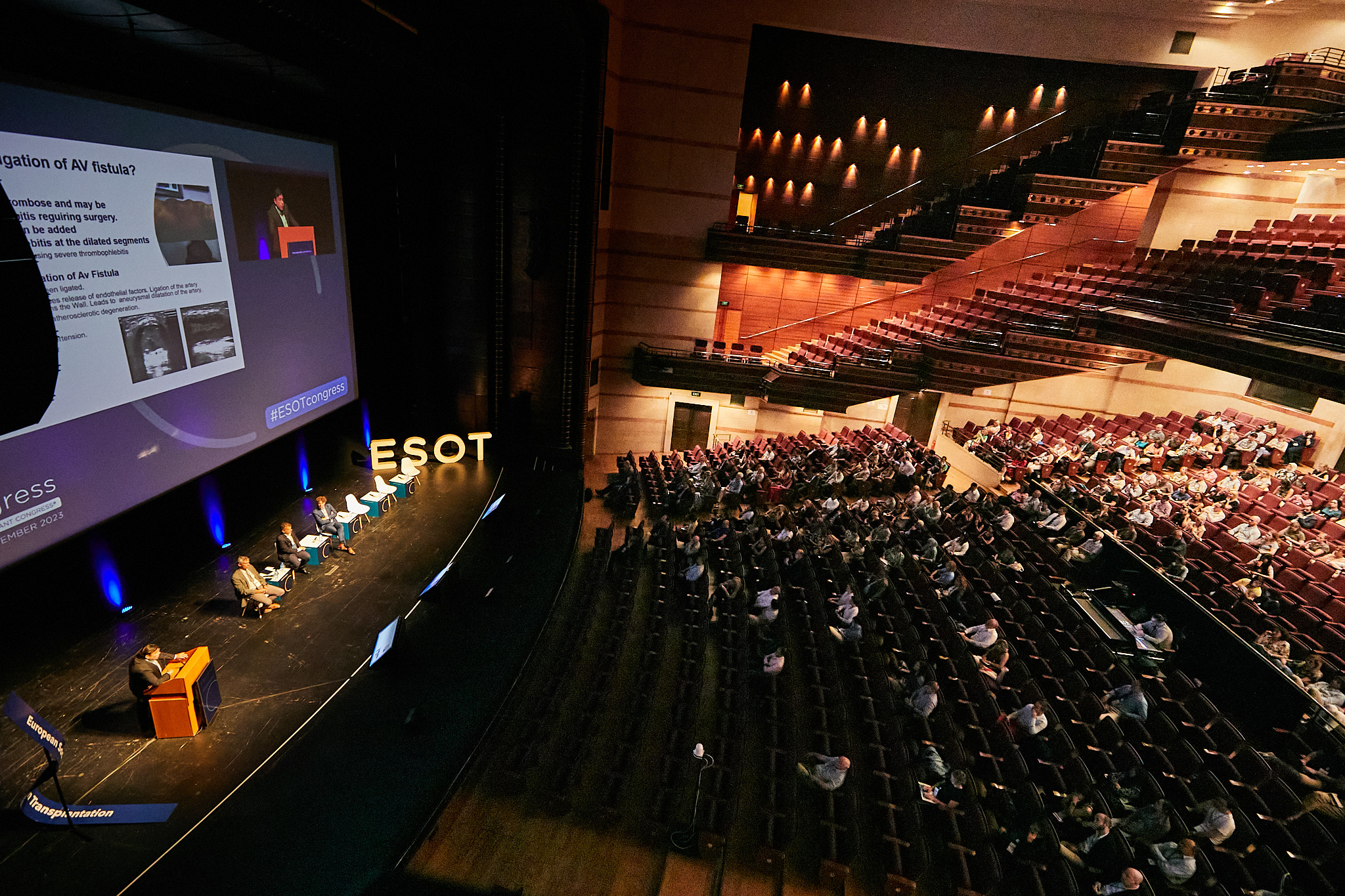
Scientific Highlight
Xenotransplantation extends survival in recipients with advanced kidney disease
A long-term study from the US has shown that xenotransplantation (XTx) can extend survival by up to 2 years in recipients with advanced kidney disease. The study utilised gene-editing technology to create triple knock-out (TKO) kidney donor grafts from Yucatan minipigs, with and without the incorporation of human transgenes. These genetically modified grafts were transplanted in cynomolgus macaque monkeys and immunosuppressive measures were employed to support the transplants.
Results revealed that grafts expressing human transgenes were associated with significantly prolonged survival compared to TKO-only grafts (median survival: 283 vs 5 days, respectively). Notably, the development of donor-specific antibodies (DSAs) or anti-porcine antibodies did not consistently impact overall survival. Overall, the most common reasons for graft rejection were antibody-mediated or due to thrombotic microangiopathy, with only the former correlating with post-transplant DSA levels.
Karadagi A, et al. Long-term (2 years) survival of porcine to nonhuman primate life-sustaining kidney xenotransplantation. Presented at the ESOT Congress 2023; 18 September 2023; Athens, Greece.
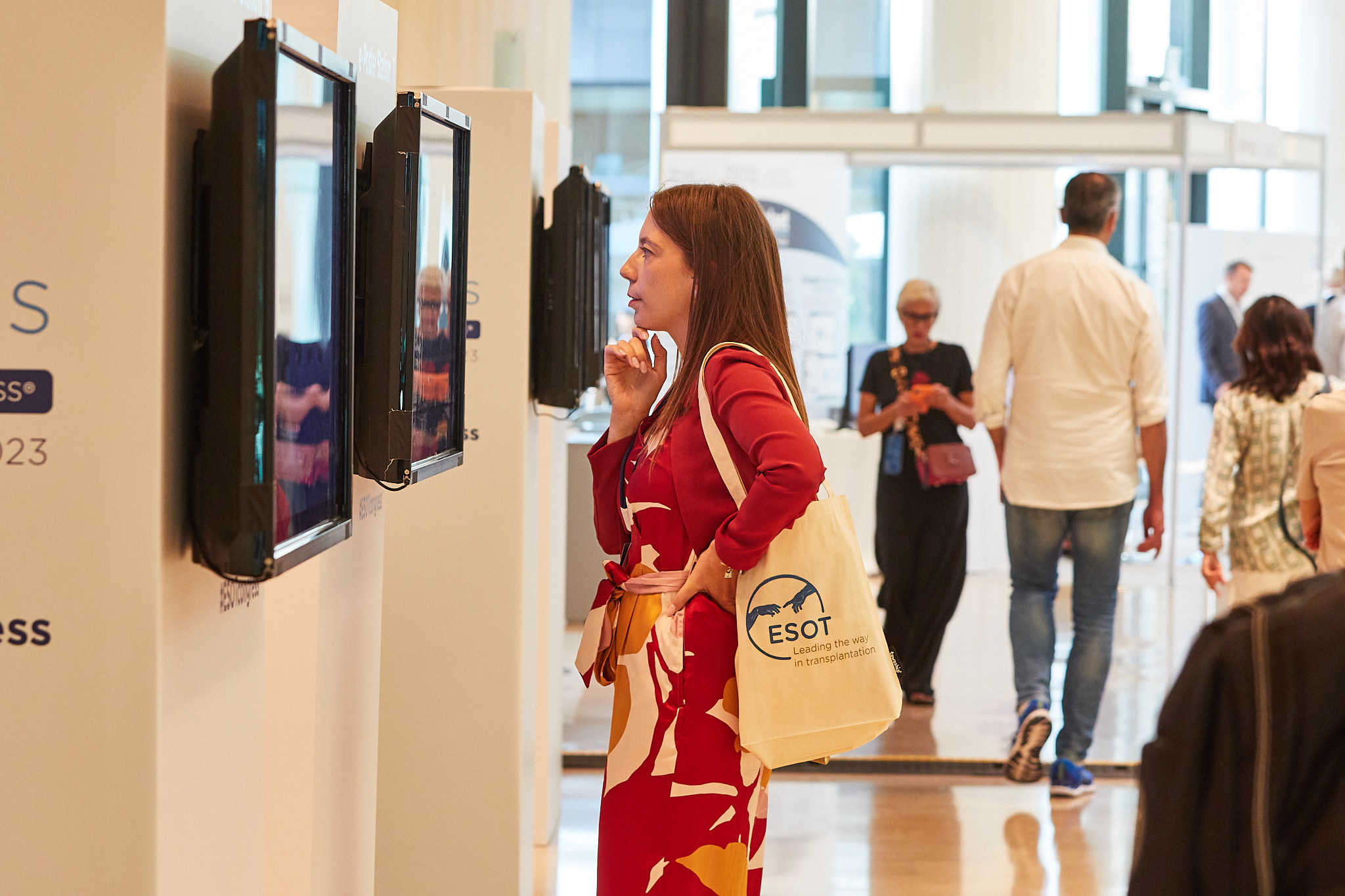
Stronger Together PRO Award
Celebrating the groups that achieve the highest average score for a collection of submitted abstracts
Kindly supported by Immucor, The ESOT StrongerTogether PRO Award acknowledges excellence among transplant centres, units, institutions or hospitals in transplantation.
Presented last night by the ESOT President, Luciano Potena, and the ESOT Congress Chairs, Gabriel Oniscu and John Boletis, this award recognised the organisation that has achieved the best average score for their collection of submitted abstracts.
Congratulations to the exceptional team at the Paris Institute for Transplantation & Organ Regeneration (PITOR) who were the winners of this award and achieved the best average score for their submissions. The PITOR group were honoured with a €5,000 prize in acknowledgement of their significant contribution to the field.
We also congratulate the Cambridge Group who were the runners-up for this award and we thank you for all of your great efforts and continuous commitment to transplantation.
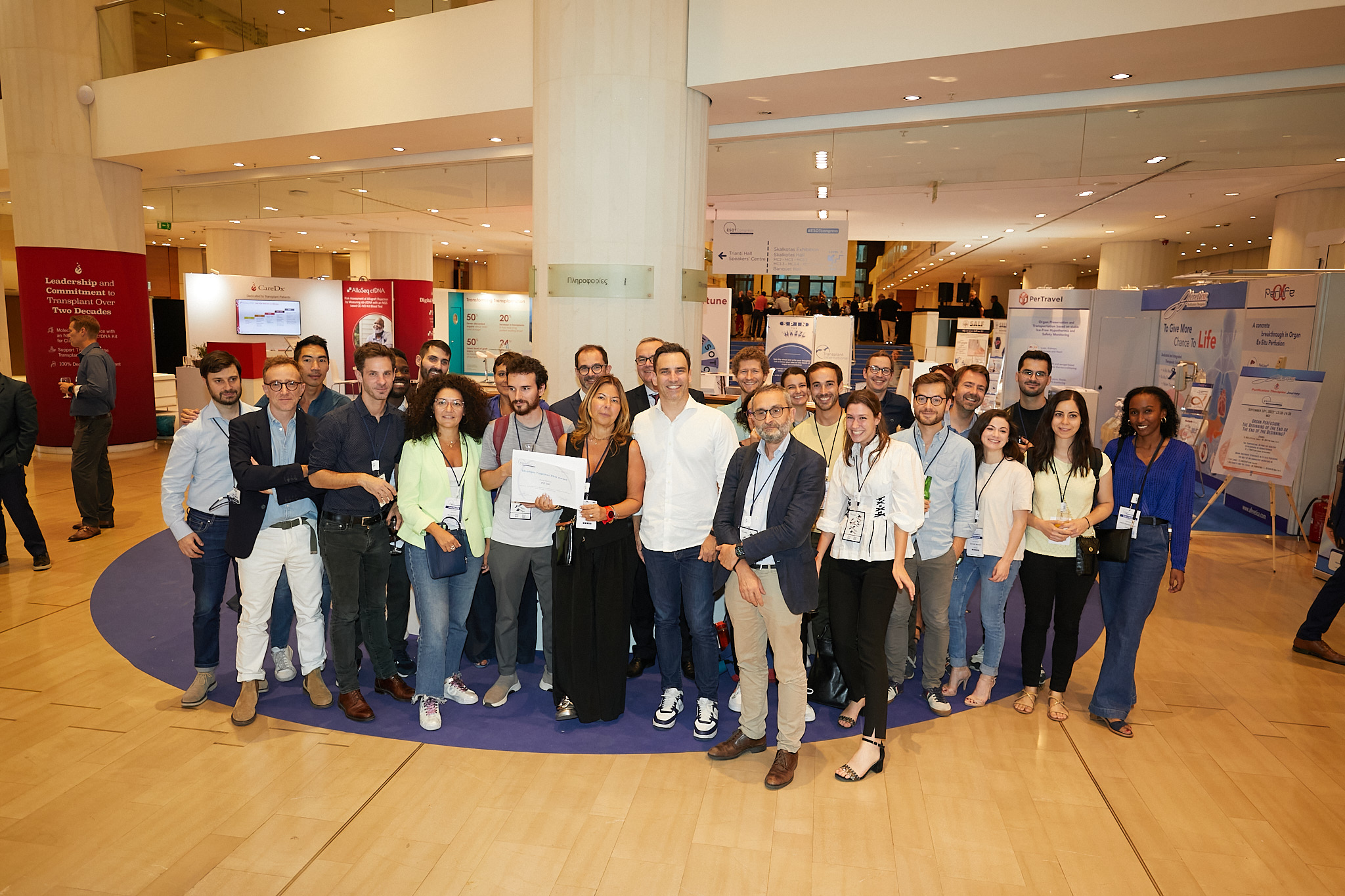
Scientific Highlight
No differences in survival outcomes from transplanted kidneys donated before vs after death in the UK
A study comparing kidney transplants from donors before and after death found no significant differences in survival outcomes, offering valuable insights for settings without access to pre-transplant renal biopsy reports.
Dual kidney transplants (DKTs) are typically performed when organs are small or of marginal quality, with standardised scoring methods guiding the decision to use one or both kidneys. Concerns have existed about the outcomes of kidney donation after death (DCD) compared to donation before death (DBD).
To address this, an exploratory study examined survival outcomes following DKT using grafts from DCD and DBD donors. Among 51,961 renal transplants reported to the National Health Service Blood and Transplant (NHSBT) registry, 525 were DKTs. After controlling for bias, the study revealed no significant differences in survival outcomes between DCD and DBD donor transplants. Contrary to previous concerns, this study found that DBD transplants had lower rates of delayed graft function than DCD transplants (odds ration [OR]: 0.4).
Khawaja A, et al. Is there a difference in survival outcomes of dual kidney transplants of DCD v/s DBD allografts in absence of national pathology service? Presented at the ESOT Congress 2023; 18 September 2023; Athens, Greece

Digital Transformation in Transplantation Best Abstract Award
Recognising digital science excellence in transplantation
The new Digital Transformation in Transplantation Best Abstract Award, supported by the Onassis Foundation, celebrates innovation in transplantation. It acknowledges the best abstract in the domain of digital transformation, which encompasses a wide range of topics including artificial intelligence, big data, e-health and m-health platforms, telemedicine advancements, digitalisation, and beyond…
We are delighted to announce Valentin Goutaudier as the first recipient of this award for his abstract titled, ‘Development, application and validation of a histological classification automation system for kidney allograft precision diagnostics’.
Our sincere congratulations extend to Valentin Goutaudier, who will be granted a prize of €3,000 in recognition of his work.
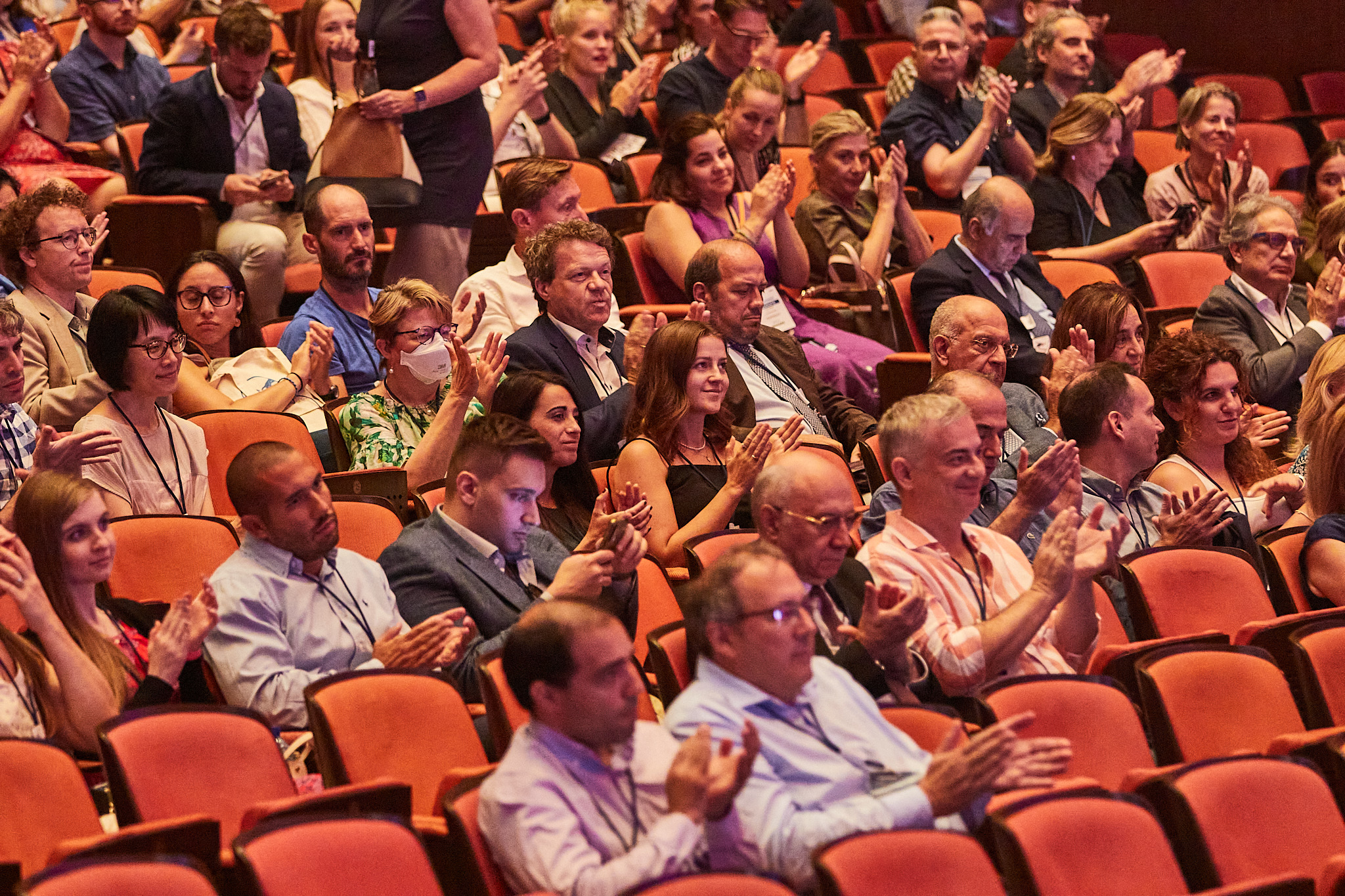
Scientific Highlight
New drug class prevents key ageing mechanism in organ transplants
A novel study has shown that Senolytics, a new class of drugs, have the potential to prevent the transfer of senescence, a key mechanism of ageing, and the associated physical and cognitive impairments in the recipients of older donor organs.
By transplanting older donor organs into younger recipients, researchers investigated the role of transplantation in inducing senescence. The team conducted age-disparate heart transplants from both young (3 months) and old (18-21) mice into younger recipients. Recipients of old hearts showed augmented frequencies of senescent cells in draining lymph nodes, livers and muscles, in addition to augmented systemic mt-DNA levels. Transplanting old organs also led to both physical and cognitive impairments in recipient animals.
However, when old donors were treated with Senolytics (Dasitinib and Quercetin) prior to organ procurement, the transfer of senescence was significantly reduced through a diminished accumulation of senescent cells and mt-DNA. Recipients of old organs treated with Senolytics showed improved physical fitness that was comparable to observations in recipients of young organs.
Roesel M, et al. ‘Spreading’ aging with the transplantation of old organs: An experimental reality. Presented at the ESOT Congress 2023; 18 September 2023; Athens, Greece.
